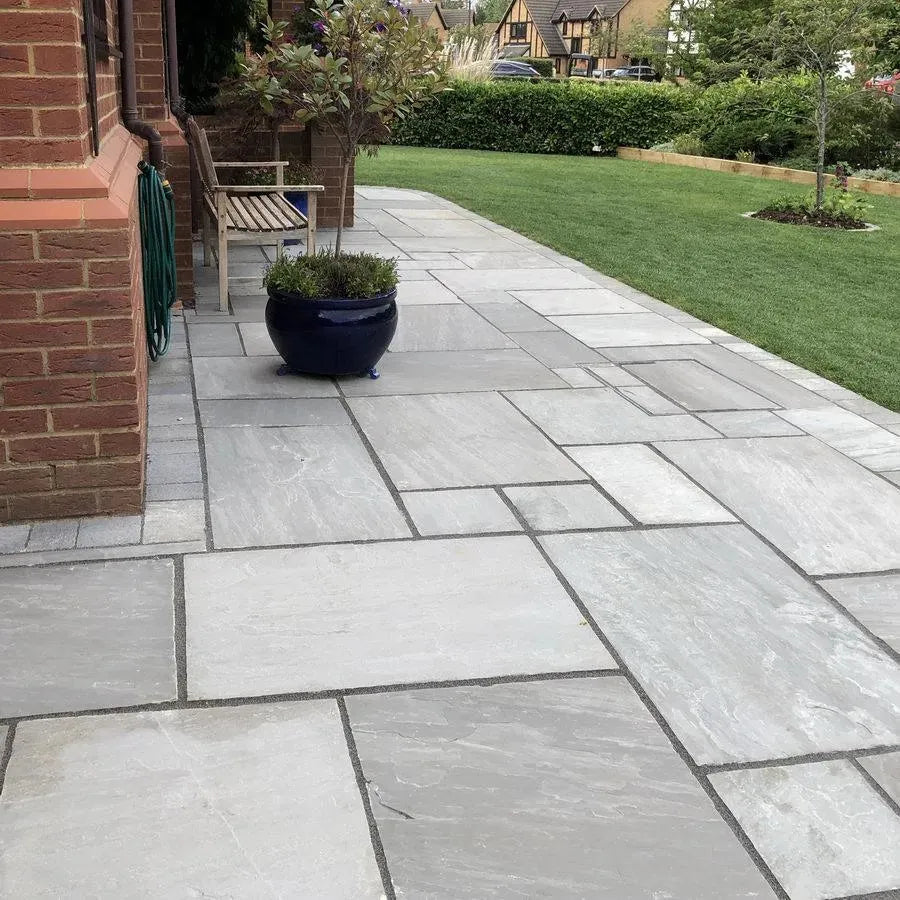Are you considering revamping your outdoor space with some new paving slabs? You may be faced with the inevitable choice between porcelain paving and sandstone paving. The thing is, it's hard to choose between the two!
We’ll list the pros and cons of porcelain paving and sandstone paving so you can choose the perfect paving for your garden!
Pros of Porcelain Paving:
- Durability: Porcelain paving is one of the sturdiest patio options, capable of withstanding heavy impacts and high-traffic areas.
- Low Maintenance: Porcelain paving stones are naturally stain-resistant and require minimal maintenance, ensuring their longevity.
- Moisture Resistance: Porcelain paving has low porosity, making it resistant to moisture penetration and providing anti-slip properties when wet, suitable for rainy and humid conditions.
- Fire Resistant: Porcelain paving is non-flammable, contributing to fire safety, which is reassuring for outdoor activities like barbecues.
Cons of Porcelain Paving:
- Installation Difficulty: The dense and hard nature of porcelain can make it challenging to cut and install, especially for non-experts.
- Weight: Porcelain is a heavy material, so it's crucial to check if your outdoor space can support the additional weight.

Pros of Sandstone Paving:
- Durability: While not as durable as porcelain paving, sandstone paving can still last for decades with proper care.
- Eco-Friendly: Sandstone paving is recyclable and biodegradable, and its manufacturing process is less harmful to the environment as it doesn't use harmful chemicals.
- Unique Finish: Each piece of sandstone paving is unique natural stone paving, providing a natural and distinct appearance with a range of design possibilities.
- Easy Maintenance: Sandstone paving is extremely low maintenance, and high-pressure washing can be used for cleaning without damaging its colour or finish.
Cons of Sandstone Paving:
- Water Absorption: Sandstone paving is porous and can absorb water, potentially leading to damage and permanent stains from liquids, mold, and bacteria.
- Scratches: Sandstone paving is softer compared to other types of rocks, making it more prone to dents and scratches over time, although proper care can mitigate this issue.
We hope this comparison helps you decide which type of paving is best suited for your outdoor space. If you'd like more information or expert advice, consider visiting our online stone Paving Slabs UK, where you can explore a wide range of outdoor paving options. We offer nationwide delivery services, additionally, we provide wholesale service to traders per online store across the UK.







